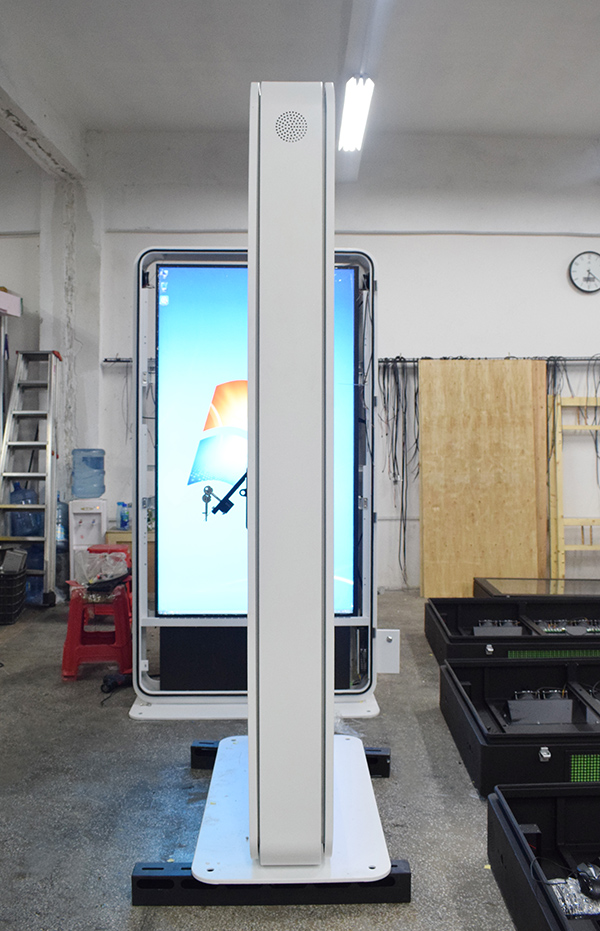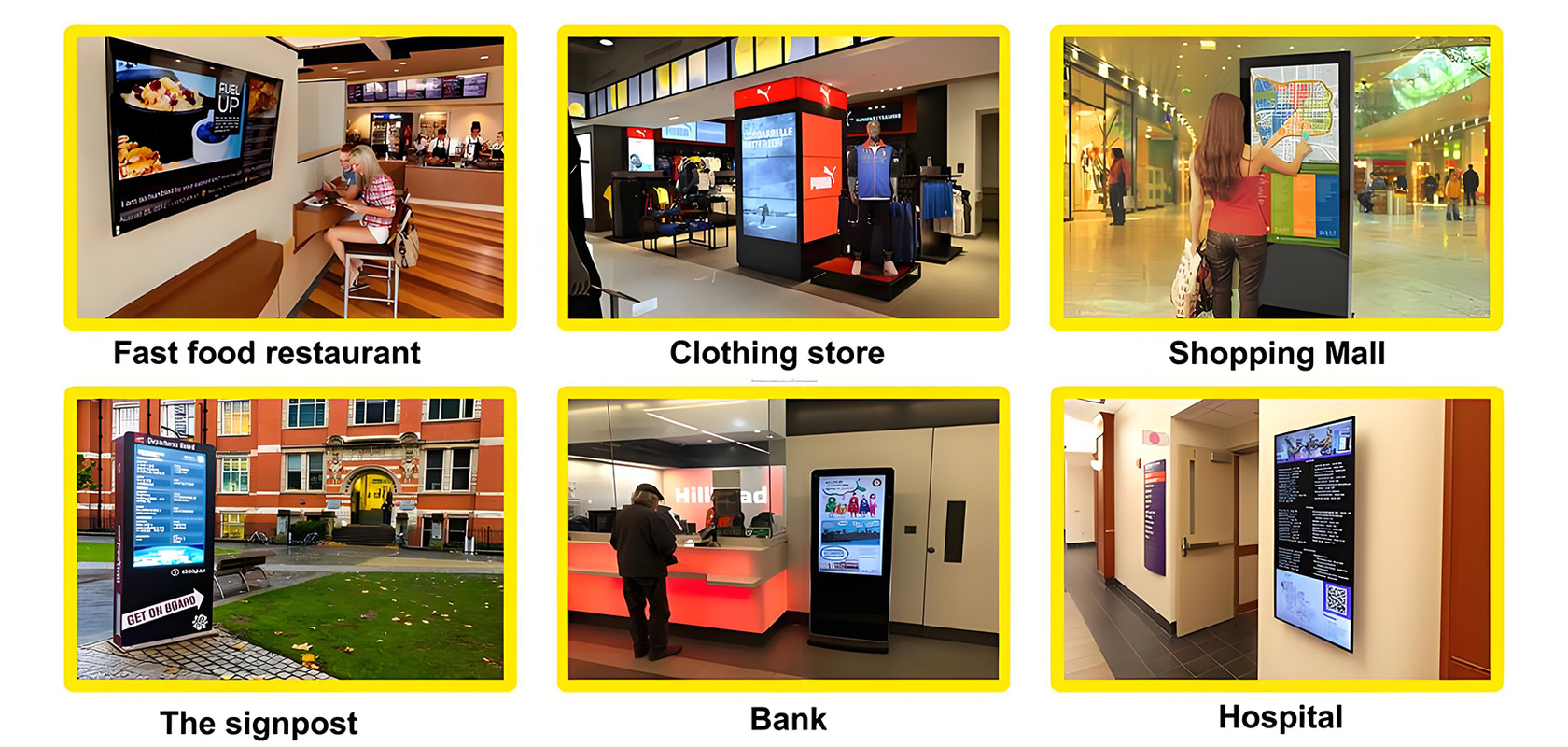
Tips for Utilizing Outdoor Digital Signage Effectively.In today's fast-paced world, outdoor digital signage has emerged as a powerful tool for communication, marketing, and information dissemination. Whether you're a business owner, an event organizer, or a public service provider, leveraging outdoor digital signs can significantly enhance your engagement with the audience. However, to truly harness their potential, it's essential to understand the nuances and best practices associated with their use. This article delves into the various tips and tricks for utilizing outdoor digital signage effectively, ensuring your message reaches the right people at the right time.

1. Understand Your Audience
The first step in any successful outdoor digital signage strategy is understanding your target audience. Who are they? What are their needs, preferences, and behaviors? By gaining insights into the demographics, interests, and daily routines of your audience, you can tailor your content to be more relevant and engaging. For instance, if your signage is located near a college campus, incorporating elements that resonate with students, such as vibrant visuals and trendy slang, might be more effective.
2. Choose the Right Location
Location is crucial when it comes to outdoor digital signage. The visibility and impact of your signage heavily rely on where they are placed. Consider factors such as foot traffic, vehicular traffic, and the proximity to your target audience. Additionally, ensure that the location has the necessary infrastructure, such as power supply and internet connectivity, to support your digital signage. A well-chosen location can significantly boost the visibility and effectiveness of your message.
3. Optimize for Visibility
Outdoor digital signs are often subjected to varying weather conditions and lighting environments. Therefore, it's vital to optimize your content for visibility. Use high-contrast colors, large fonts, and clear images to ensure that your message is readable from a distance. Moreover, consider the use of brightness sensors to automatically adjust the screen's brightness based on ambient light conditions. This not only enhances visibility but also prolongs the lifespan of your display by preventing overexposure.
4. Keep Content Fresh and Engaging
One of the biggest advantages of digital signage is the ability to update content in real-time. To keep your audience engaged, regularly update your content with fresh information, news, and visuals. Dynamic content, such as live feeds, weather updates, or interactive elements, can significantly enhance the appeal of your signage. However, ensure that the content remains relevant to your audience and aligns with your overall objectives.
5. Leverage Data and Analytics
Digital signage systems often come with analytics tools that provide valuable insights into audience behavior. Utilize these tools to track metrics such as viewership, engagement rates, and dwell times. This data can help you understand what content resonates with your audience and make informed decisions to optimize your strategy. For instance, if certain types of content are receiving higher engagement, consider incorporating similar elements into future updates.
6. Design for Simplicity
In the outdoor environment, simplicity is key. People are often on the move and have limited time to absorb information. Therefore, design your content with simplicity and clarity in mind. Avoid cluttering the screen with too much information or complex visuals. Instead, focus on delivering a clear and concise message that can be quickly understood. Use bullet points, short sentences, and compelling visuals to convey your message effectively.
7. Incorporate Interactivity
Interactive digital signage can significantly enhance user engagement. Features such as touch screens, QR codes, and motion sensors allow audiences to interact with the content, making it more memorable and impactful. For instance, you could create an interactive map for visitors to navigate a large event venue or a touch-screen kiosk for customers to browse products and services. Interactivity not only makes your signage more engaging but also provides a unique and memorable experience for your audience.
8. Ensure Content Relevance
Relevance is crucial in any communication strategy, and outdoor digital signage is no exception. Ensure that your content is relevant to the context in which it is being displayed. For example, if your signage is located near a sports facility, incorporating sports-related content or updates can be highly effective. Similarly, if it's near a transit hub, providing real-time transit information or local weather updates can be valuable. Relevance ensures that your audience finds the content useful and engaging.
9. Plan for Maintenance
Outdoor digital signage is exposed to the elements, which can lead to wear and tear over time. Therefore, it's essential to plan for regular maintenance and repairs. Establish a maintenance schedule, and have a team or service provider in place to address any issues promptly. This not only ensures the longevity of your signage but also minimizes downtime, ensuring your message is always visible to your audience.
10. Comply with Regulations
Before installing outdoor digital signage, familiarize yourself with local regulations and guidelines. Different areas have specific rules regarding the size, placement, and operation of digital signs. Compliance with these regulations is crucial to avoid fines or legal issues. Additionally, consider the impact of your signage on the local community. Ensuring that your signage is respectful and considerate of its surroundings can foster positive relationships and enhance your reputation.
11. Utilize Professional Design Services
Designing effective outdoor digital signage requires a blend of creativity, technical knowledge, and industry expertise. While it may be tempting to design content in-house, investing in professional design services can yield significant benefits. Professional designers have the experience and tools to create visually appealing and effective content that aligns with your brand and objectives. They can also help you navigate the technical aspects of digital signage, ensuring optimal performance and visibility.
12. Monitor and Adjust Your Strategy
Finally, effective outdoor digital signage requires ongoing monitoring and adjustment. Regularly review the performance of your signage and make adjustments based on the data and feedback you receive. This could involve tweaking content, adjusting the display settings, or relocating the signage to a more strategic location. By continually refining your strategy, you can ensure that your outdoor digital signage remains effective and engaging over time.
In conclusion, outdoor digital signage offers a versatile and powerful platform for communication and engagement. By understanding your audience, choosing the right location, optimizing for visibility, keeping content fresh, leveraging data, designing for simplicity, incorporating interactivity, ensuring content relevance, planning for maintenance, complying with regulations, utilizing professional design services, and monitoring your strategy, you can maximize the impact of your outdoor digital signage. Whether you're promoting a business, providing information, or enhancing an event, these tips will help you harness the full potential of outdoor digital signage to effectively reach and engage your audience.
Current article link: https://www.lcdkiosk.com/news/722.html

Tel
